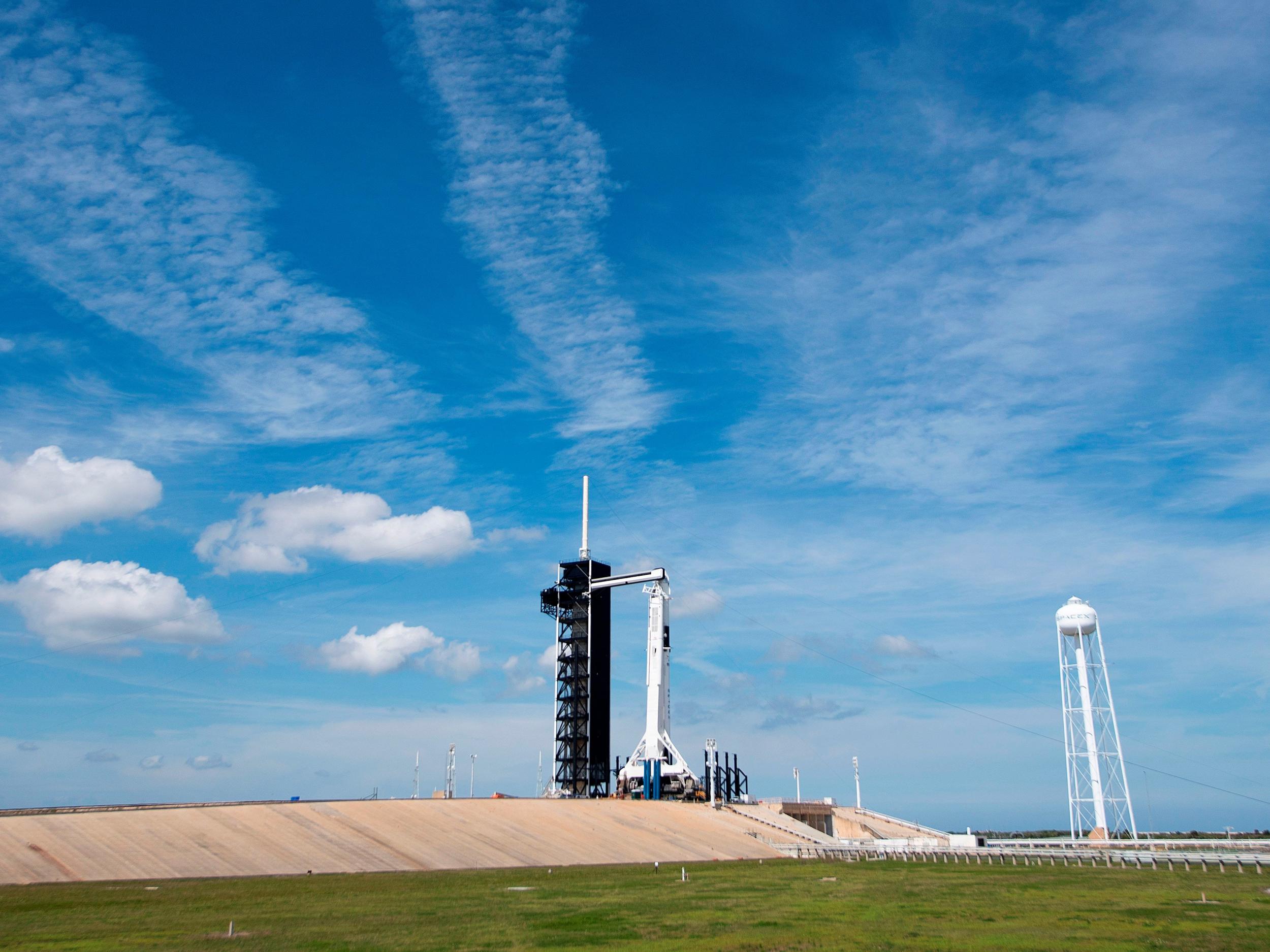Elon Musk says space internet is nearly here as SpaceX prepares Starlink satellite launch
A constellation of thousands of satellites will beam broadband around the world from low-Earth orbit

SpaceX CEO Elon Musk has revealed the first batch of satellites designed to provide global internet coverage from space are ready to launch.
Sixty satellites are scheduled to liftoff aboard SpaceX's Falcon 9 rocket on 15 May from Cape Canaveral, Florida, as part of the space firm's Starlink project.
If successful, the payload will form the first part of a constellation made up of nearly 12,000 satellites. Together they will orbit the Earth and beam internet coverage to all parts of the planet.
Mr Musk shared images on Twitter of the first 60 Starlink satellites packed inside the nose cone of the Falcon 9, though warned there may be some issues with the early units.
"Much will likely go wrong on first mission," he tweeted. "Also, six more launches of 60 satellites needed for minor coverage, 12 for moderate."
SpaceX launched two test satellites named TinTin A and TinTin B last year, those these will not form part of the final constellation.
The success of the two TinTin satellites were enough to convince the Federal Communicatoins Commision (FCC) to allow the full Starlink project to be realised, so long as at least half of the satellites are launched within the next six years.
At a space conference last week, SpaceX COO Gwynne Shotwell revealed that up to six more Starlink launches will take place this year.
"This next batch of satellites will really be a demonstration set for us to see the deployment scheme and start putting our network together," she said at the Satellite 2019 conference in Washington, DC, according to SpaceNews.
SpaceX is not the only company working on a form of space-based internet, with Amazon the most high-profile rival.
It was revealed last month that the tech giant plans to launch a network of more than 3,000 low Earth orbit satellites to provide high-speed broadband connectivity to "unserved and underserved communities around the world".
Amazon founder Jeff Bezos will use rockets from his Blue Origin space project in order to send the satellites into orbit.
"This is a long-term project that envisions serving tens of millions of people who lack basic access to broadband internet," Amazon said in a statement.
"We look forward to partnering on this initiative with companies that share this common vision."
Join our commenting forum
Join thought-provoking conversations, follow other Independent readers and see their replies
Comments
Bookmark popover
Removed from bookmarks